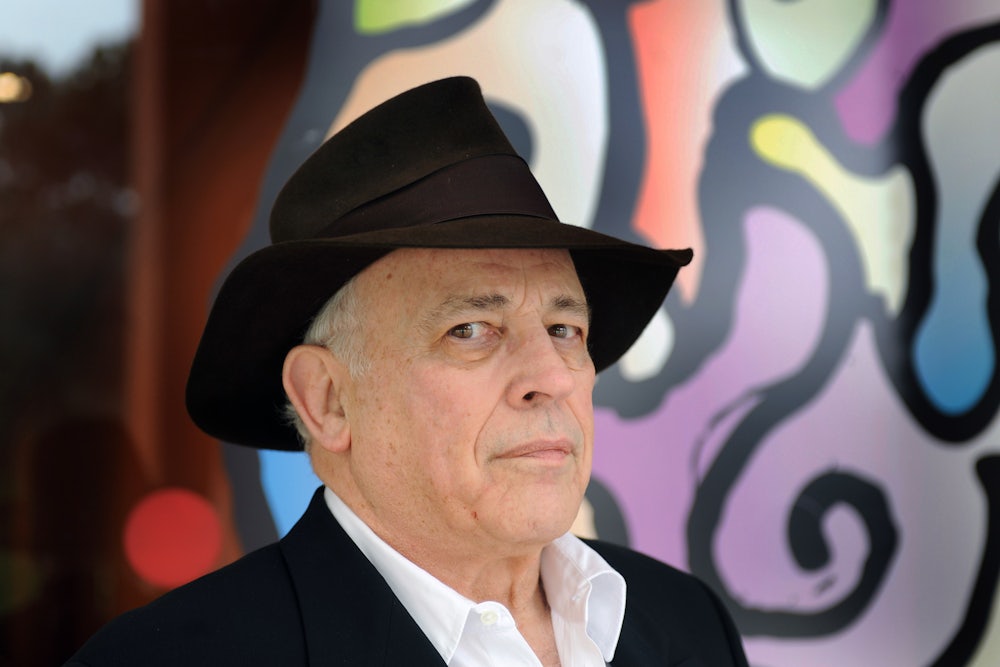But, there's also a private version.
Evgeny Morozov calls it "an elaborate massage of the ego (and apparently much else) for the rich, the smart, and the powerful."
Turns out there's a horrible pun of sorts in that material in parentheses.
In the article, Morozov drops the reveal on just how much of a "FOJ" Brockman is. That would be as in "Friend of Jeffrey," with the Jeffrey being Jeffrey Epstein. And there's your horrible, and horribly true, in all likelihood, pun.
Brockman is also a heavy hitter in the book agency world for science authors. THAT now explains, I think, the Lawrence Krauss connection with Epstein.
Morozov explains:
Epstein participated in the Edge Foundation’s annual questions, and attended its “billionaires’ dinners.” Brockman may also be the reason why so many prominent academics—from Steven Pinker to Daniel Dennett—have found themselves answering awkward questions about their associations with Epstein; they are clients of Brockman. Marvin Minsky, the prominent MIT scientist who surfaced as one of Epstein’s island buddies? A client of Brockman’s. Joi Ito, the director of the elite research facility MIT Media Lab, who has recently acknowledged extensive ties to Epstein? Also, a client of Brockman’s.
So, Krauss, infamous for his own Epstein connections, was either an imperial playtoy at one of these dinners, a Brockman agency client, or both. (That "prominent academics" link makes clear Krauss was invited to one of the shindigs, if nothing else.)
So? Which is exactly where Morozov goes next:
Should we just write it off as natural collateral damage for someone with a network as extensive as Brockman’s?
In Brockman’s world, billionaires, scientists, artists, novelists, journalists, and musicians all blend together to produce enormous value — for each other and, of course, for Brockman. This mingling of clients doesn’t happen in other literary agencies, at least not to this extent. Nor does this happen at Brockman Inc., as all such interactions that we know of took place under the umbrella of the Edge Foundation, a sibling organization, with Brockman as its president. Would Brockman Inc. exist without the Edge Foundation? Possibly—and it did, at the outset. Would it be as powerful, trading on Brockman’s ability to rub shoulders with academics and billionaires alike? Probably not. Still, I can attest that Brockman’s authors face no pressure to get involved with Edge: I, for example, diligently responded to their annual questions between 2010 and 2013—and then stopped, as I was put off by Brockman’s insistence that people responding to the annual question should keep away from politics.
So ... Dennett, Pinker and many others, even if, unlike Krauss, they have never had anything besides their egos massaged, have been at least partial accomplices in having Brockman's ego massaged through silence. That's Morozov's take.
He continues in that vein:
When the Epstein-Brockman connection first surfaced in the news, I wanted to give Brockman the benefit of the doubt. ... In the last few weeks, such a charitable interpretation has become very hard to sustain, especially as other details ... became public. John Brockman has not said a word publicly about his connection to Epstein since the latest scandal broke, preferring to maintain silence on the matter. That I have found quite infuriating.
Morozov then personalizes why he finds this infuriating. He said he got an email from Brockman in 2013, intended for somebody else. They had a back and forth and Morozov makes this observation, aided to some degree by hindsight, as he says that, years ago, he didn't know who Epstein was (born in Belarus, I have no doubt on that):
In that old email, it seems clear that Brockman was acting as Epstein’s PR man.
There you go. And, 2013 was after Epstein's original conviction, of course. He expands:
(N)ow that I’ve found that old email he sent me, I cannot
believe that he knew absolutely nothing of Epstein’s wild sexual escapades—in
fact, his email suggests he was trying to capitalize on them to
recruit yet another useful idiot into Epstein’s network.
OK, that's that.
Morozov has decided to act.
I’m just one of the many authors in Brockman’s agency; my departure wouldn’t affect anything. I am also the last one to complain: His agency sold two of my books, and I have two more underway, also sold by them.
Yet, I am ready to pull the plug on my association with Brockman’s agency—and would encourage other authors to consider doing the same—until and unless he clarifies the relationship between him, the Edge Foundation, and Epstein. If such an explanation is not forthcoming, many of us will have to decide whether we would like to be part of this odd intellectual club located on the dubious continuum between the seminar room and a sex-trafficking ring.
Brockman ceased being my agent a decade ago, but I'm not going to speak ill of him. And Morozov is a rat jumping off a ship he thinks is sinking.— John Horgan (@Horganism) August 22, 2019
Beyond that, I thought the "great question" on the public version of The Edge often bordered on pretentiousness. Many of them recycled themselves.
It seems that John Brockman's greatest sales job has been selling himself.
Also, as I've said elsewhere about movement skepticism and atheism, science, especially when carried out to scientism, is no guarantor of moral (or well-rounded intellectual) superiority.


No comments:
Post a Comment